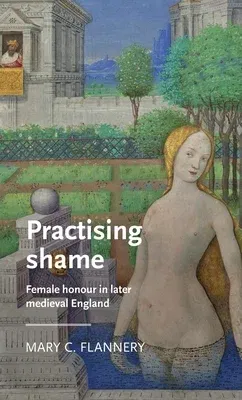Mary C Flannery
(Author)Practising Shame: Female Honour in Later Medieval EnglandPaperback, 2 November 2021

Qty
1
Turbo
Ships in 2 - 3 days
Only 2 left
Free Delivery
Cash on Delivery
15 Days
Free Returns
Secure Checkout

Part of Series
Manchester Medieval Literature and Culture
Print Length
288 pages
Language
English
Publisher
Manchester University Press
Date Published
2 Nov 2021
ISBN-10
1526110075
ISBN-13
9781526110077
Description
Product Details
Author:
Book Format:
Paperback
Country of Origin:
US
Date Published:
2 November 2021
Dimensions:
21.59 x
13.97 x
1.22 cm
ISBN-10:
1526110075
ISBN-13:
9781526110077
Language:
English
Location:
Manchester
Pages:
288
Publisher:
Weight:
267.62 gm